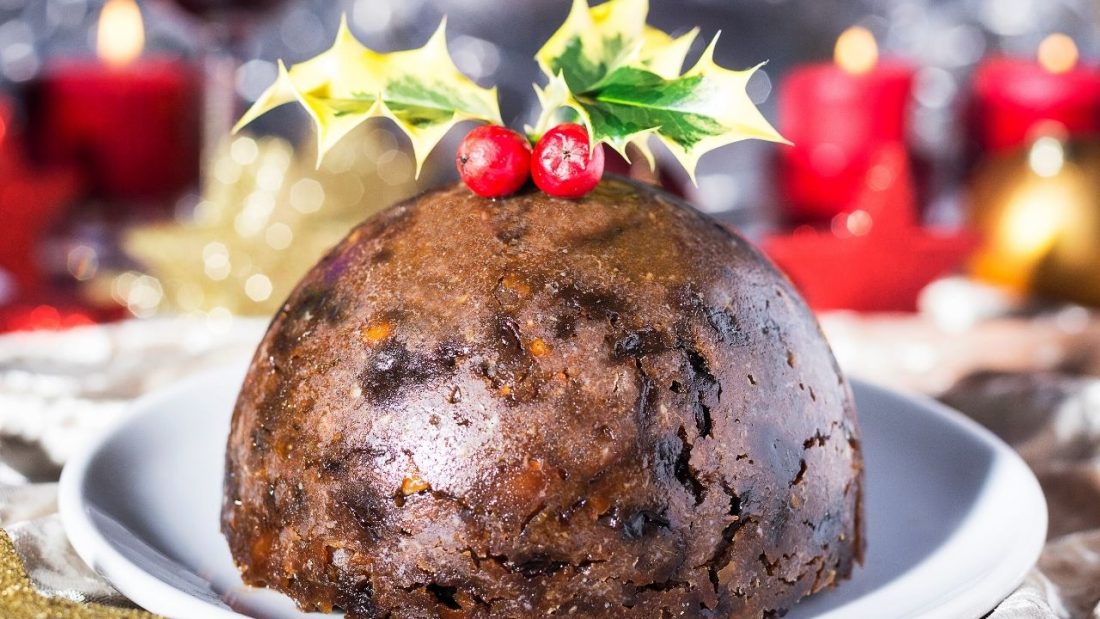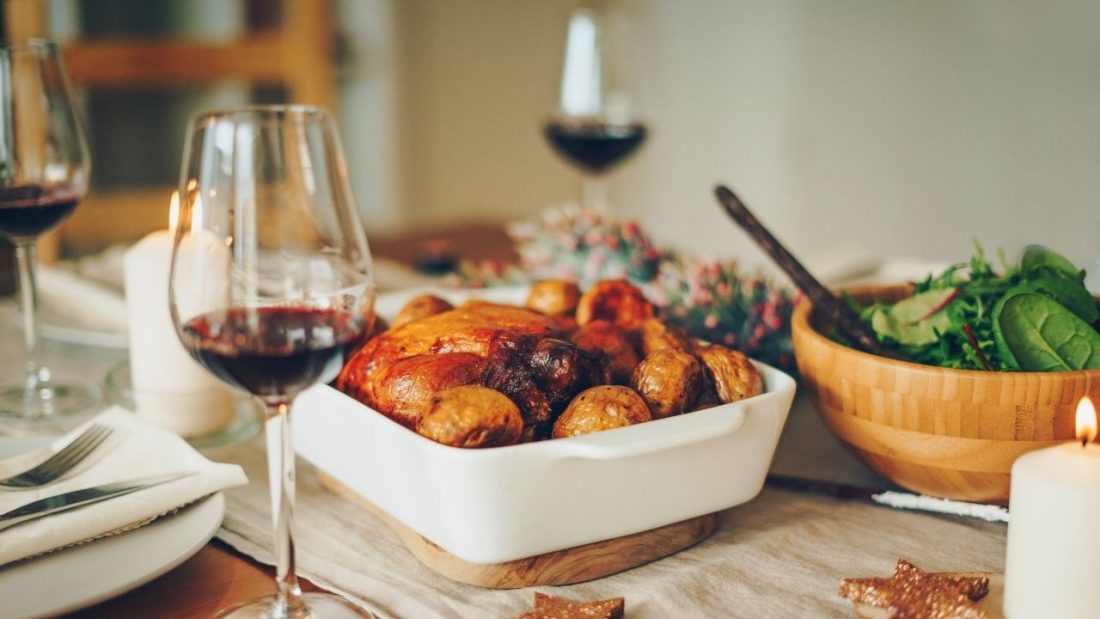Even though it is a couple of decades ago now, I still recall the discomfort from overeating on Christmas day.
Looking back, I now realise that Christmas day was not the only day we overate,
but on a scale of 1 to 5, where 5 is overfull, Christmas day was 10!
Why is overeating on Christmas day so common?
I just want to start with a disclaimer – overeating doesn’t occur in every family!
As with other festive days, Christmas is celebrated diversely within communities and families.
In our family, food was abundant and special.
We followed the English tradition of a hot roast meal at lunch time, starting with soup and ending with plum pudding.
I can still recall us all sitting around the dining table with our Christmas party hats on and reading the silly jokes that came with the bonbons.
Our meals were plated for us, and we were expected to eat everything on our plate, as for every other meal.
The plum pudding contained coins, which encouraged us kids to eat more than one piece,
and definitely more that our stomachs could comfortably hold.
At the time it was fun to hunt out the coins, but afterwards we could hardly move.
There were also nuts and expensive chocolates freely available to eat. These were tempting too as they were not offered on other days.
This was my recollection of Christmas Day right into my mid 30s. By this time my fullness level had dropped from 10 to 5!
How to avoid Christmas overeating
Overtime by using a mindfulness approach, I found practical ways to enjoy Christmas day and avoid Christmas overeating. These have been beneficial for my clients too.
#1 Start your own tradition
What do you want your Christmas day to be like?
Whether you are the host on Christmas day or travel to be with family and friends,
take some time to consider what you want your tradition to be.
It is possible to keep what you loved about family Christmas days without the excessive amounts of food.
#2 Self-serve
Allow everyone to choose how much they want to eat.
Pre-plated meals with the encouragement to “eat everything on your plate” is a sure recipe for overeating.
Self-serving your food helps to avoid Christmas overeating.
#3 Lots of vegetables
Part of the reason I can still recall the discomfort of Christmas day was due to my overeating of high fat and sugary foods.
Having salads and steamed vegetables as a key part of the celebration menu keeps the meal light, satisfying and energising.
The fibre content of vegetables helps to reduce overeating,
#4 The drive to overeat
Before the day, consider what is driving you to overeat on Christmas day.
For me there were several drivers including,
- Keeping to the rule of having to eat everything on my plate regardless of my hunger level.
- Hunting for the coins in the pudding, a family tradition.
- Eating sweet foods, because I had created a story for myself that these were special foods.
#5 Consider non-alcoholic drinks
What we drink influences what and how much we eat too.
How does your eating change when you drink alcohol?
Perhaps a glass is okay, but beyond that you may find you eat more, and eat more salty or sugary foods.
You might enjoy these non-alcoholic drinks, read here and avoid Christmas overeating.
#6 Prioritise sleep
Being tired can be a driver for overeating.
When we consistently have less than 7 to 9 hours of quality sleep a night our stress hormones change.
A rise in cortisol levels encourages us to seek out high fat and high sugar foods.
#7 Move
Our family’s evolution of Christmas day included a walk after lunch.
Whilst it couldn’t cure the overeating that had occurred, it made us feel better!
The walk was also another way for us to enjoy each other’s company.
These 7 tips can be easily applied to any day of the year.
I hope they help you to make your Christmas day happier and healthier.
I also encourage you to savour your food. By being mindful of the experience of eating you can adjust what and how much you eat x
Additional tips on eating to match your hunger level can be found in the Eating for You Community on Facebook.
JOIN HERE



